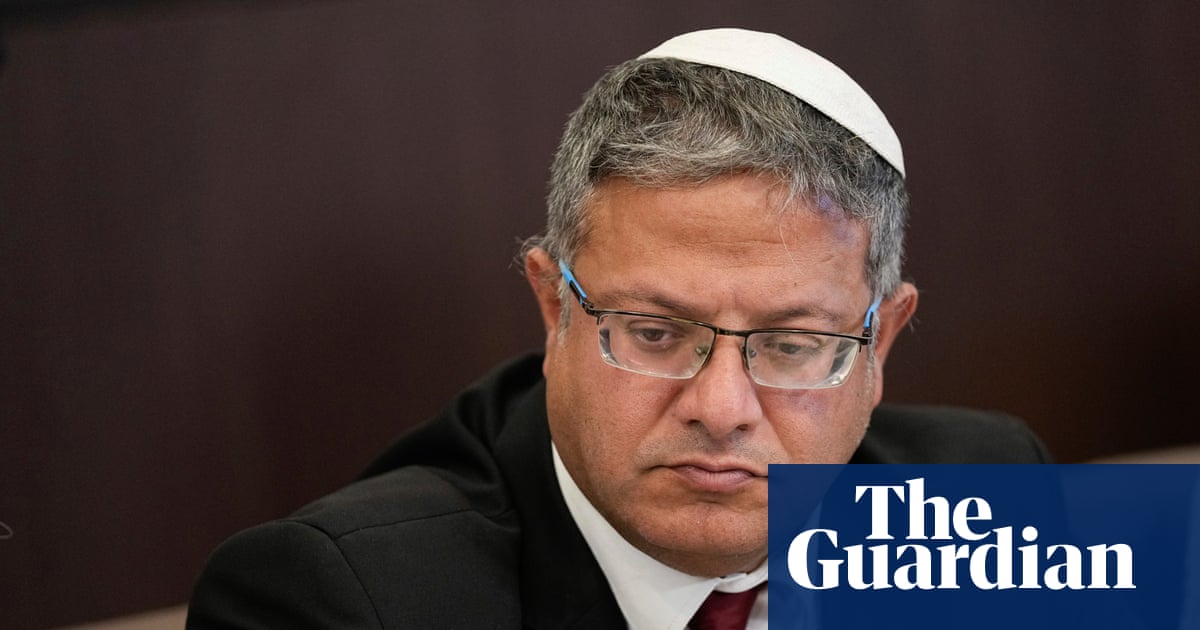
Israel’s national security minister presented himself before the television cameras to make a statement on Sunday, shortly after leaving a meeting with the country’s prime minister.
Invoking divine support, Itamar Ben-Gvir said he had “warned the prime minister that if God forbids it, Israel will not enter a ceasefire”. He said Benjamin Netanyahu “promised that Israel would enter Rafah, that the war would not end, and promised that there will be no irresponsible deal”.
The following Tuesday, Israeli troops had entered the Philadelphi corridor on the southern border with Egypt and taken control of the Rafah border crossing, hoisting Israeli flags from the terminal.
The sequencing of the two events was revealing. Faced once again with the threat posed by a fringe and extremist politician – who Netanyahu had elevated into government – the prime minister had given every appearance of blinking, underlining his reliance on far-right coalition allies such as Ben-Gvir and the finance minister, Bezalel Smotrich.
The two are widely assessed to hold Netanyahu’s future political survival in their hands. While Netanyahu could survive them quitting his coalition over a ceasefire deal with Hamas or the failure to launch a full-scale assault on Rafah, the politics of the Israeli right threaten him in more fundamental ways.
During the course of the war, the uncompromising position of Ben-Gvir in particular has widened support for his extremist brand of politics, attracting some on the right of Netanyahu’s Likud party.
A settler and lawyer, Ben-Gvir was cleared by Israel’s high court to serve as a cabinet minister despite convictions for incitement to racism and for supporting a terror group – Meir Kahane’s banned Kach party. In 2015, in the immediate aftermath of the murder of members of the Palestinian Dawabshe family in an arson attack on a West Bank village, he was filmed as an attender at a wedding party of a radical settler along with now sanctioned anti-Arab activist Bentzi Gopstein.
In the footage, guests could be seen stabbing a picture of Ali Dawabshe, a toddler who died during the attack, waving guns and firebombs and singing. Netanyahu, who described the images as “shocking”, would later give Ben-Gvir a portfolio with responsibility for Israel’s police.
The conditions of Israel’s illegal occupation of the West Bank have become ever more extreme under the influence of Ben-Gvir and Smotrich, prompting an escalating round of international sanctions against those involved in settler violence.
Smotrich was arrested in 2005, with three others, during the Israeli evacuation of the Gaza settlements by the Shin Bet domestic security agency on suspicion of terrorism, although he was released three weeks later without charge.
He has described himself as a “proud homophobe” and stated that Israel’s judicial system should be based on Torah law.
During the seven months of the war in Gaza, Ben-Gvir and Smotrich have pushed the most hardline positions.
According to reports in the Hebrew media last month, Ben-Gvir demanded of the Israeli chief of staff at a briefing: “Why are there so many arrests [in Gaza]?
“Can’t you kill some? Do you want to tell me they all surrender? What are we to do with so many arrested? It’s dangerous for the soldiers.”
An unnamed Israeli minister quoted by Ynet said Ben-Gvit had not explicitly suggested killing individuals who had surrendered.
What seems increasingly clear, however, is that in bending to the bidding of the far-right fringe, including over Rafah and a ceasefire, Netanyahu is increasingly out of step with the majority of Israelis.
A series of polls in recent days, including for the Israel Democracy Institute, has found that 56% of the Jewish public believe that a deal to secure the release of hostages should take top priority, compared with a third who believe that an offensive against Rafah should be the government’s main focus.
A poll for Israel’s Channel 13 tells a similar story of scepticism in the Israel public, with 52% believing a Rafah operation will not deliver victory against Hamas, compared with 30% who believe it will. Perhaps most striking, however, is a poll by rightwing newspaper Israel Hayom, which found that 28% thought the “preferred victory picture” would represent the hostages’ release, while 17% chose an image representing the destruction of Hamas.
“Even Netanyahu, despite a thousand differences, knows what most people want,” wrote Efraim Ganor in a comment piece for the Jerusalem Post earlier this week: “The release of the hostages.
“He also knows what is important and good for the people of Israel. However, he is obeying Ben-Gvir and Bezalel Smotrich, because that is what is good for Netanyahu for clear [political] reasons – and not for the people of Israel.”












